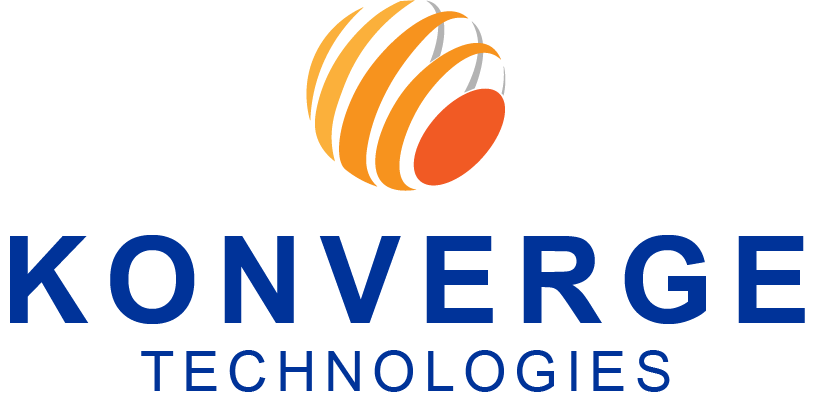
What is Data Storage? All You Need to Know

Data is the major priority for every business today since today’s businesses run on data. As data grows exponentially, the data-storing methods also extend in complexity. That is how the individual pieces of data have evolved from bits and bytes to video, audio, documents, user preferences, network configurations, and more.
The data storage approach depends on the type, amount of data, and purpose of the storage.
Finding reliable and efficient ways to store that information is the need of every business. Various types of data storage devices are available for every size of business and budget. Between too many options, it may become difficult to decide which types of data storage are suitable for your organization’s needs.
Let’s take a closer look at data storage and highlight the main storage solutions and device types.
What is Data Storage?
Data storage is the process of utilizing computer devices to save digital information, which helps achieve numerous digital tasks efficiently.
Computers leverage different types of memory depending on how the system uses the data. For instance, devices rely on RAM (Random Access Memory) for instant data storage and retrieval, while they rely on ROM(Read-only memory) for long-term data storage.
The data storage process may become complex since organizations that work with vast volumes of data require faster and high-capacity storage devices.
Some of the challenges that come with enterprise-level data storage are:
- Large data volumes: Big data projects, IoT (Internet of Things), AI(Artificial Intelligence), and ML (machine learning) require large data storage solutions to store huge amounts of data.
- Security: Businesses need a secure data storage solution with extended protection against data breaches or loss.
- Data Integrity: Complex data backup strategies with reliable data storage devices to ensure data integrity.
Several devices and forms of data storage exist to help address these small-scale and enterprise-level requirements.
Data Storage Types
Data storage devices are available for different data storage needs of organizations. Let’s get through different data storage types and how they are used. These are:
Software-defined storage
Cloud storage
Network-attached storage
Object-based storage
File storage
Block storage
Software-defined storage
SDS, the short form for Software-defined storage, uses abstraction management software to decouple data from hardware before formatting and organizing it for network use. Software-defines storage works well with container and microservice workloads that use unstructured data. This is because it can scale in ways hardware storage solutions simply can’t.
Cloud storage
Cloud storage is another data storage type. It is a service that allows to save data on offsite storage system managed by third-party and is made accessible by a web services API. The organization’s data is kept somewhere that can be accessed through the internet by the people who have been given access. You need not be connected to an internal network (NAS). Also, you can’t access the data from hardware directly connected to your computer. The most popular cloud storage service providers include Microsoft, Google, and IBM.
Network-attached storage
Network-attached storage, or NAS, makes data more accessible to internal networks by installing a lightweight operating system onto a server that turns it into a NAS box, unit, or head. The network-attached storage box processes every storage request and hence becomes an important part of intranets.
Object-based storage
Object-based storage, also known as object storage, is a flat structure in which files are broken into pieces and spread out among hardware. In object storage, the data is broken into discrete units called objects and kept in a single repository instead of as files in folders or as blocks on servers.
File storage
File storage arranges data as hierarchical files users can open and navigate from top to bottom. Since files are stored on back ends and front ends the same way, users can request files by unique identifiers such as names, locations, or URLs.
Block storage
Block storage splits data storage into blocks. Because blocks aren’t burdened with the same unique identifier requirements as files, blocks are a faster storage system making them ideal formats for rich media databases. Each block exists independently giving users a complete configuration autonomy.
Data storage for business
As we have already discussed in this article, data is the most integral part of the business. We have also discussed the data storage types; now it’s time to be specific about what businesses prefer.
Though computer memory and local storage might not provide enough storage, storage protection, multiple users’ access, speed and performance for enterprise applications, most organizations employ some form of SAN (Storage Area Network) in addition to a NAS storage system.
SAN (Storage Area Network)
A Storage Area Network or SAN is a specialized, high-speed network that connects servers and storage devices. It consists of a communication infrastructure that provides physical connections, allowing the any-to-any device to bridge the network using interconnected elements, such as switches and directors. The SAN can also be considered an extension of the storage bus concept. This concept enables storage devices and servers to interconnect using similar elements, such as local area networks (LANs) and wide-area networks (WANs). A SAN also includes a management layer that organizes the storage elements, connections, and computer systems ensuring secure and robust data transfers.
Conventionally, a server could only support a finite number of storage devices. On the other hand, a SAN adds networking flexibility and enables sharing of a common storage resource among a single server or a large number of heterogeneous systems spread across numerous data centres. The connection between a server and storage, as well as the idea that the server effectively owns and administers the storage devices, are also eliminated by the SAN. Numerous devices, including discs, magnetic tape, and optical storage, may be included in a network. Additionally, the storage tool may be placed far from the servers it uses.
Network availability, data accessibility, and system management are all improved with SAN technology. Deploying more and faster storage devices is insufficient in this context. A decent design is the foundation of a good SAN.
Eventually, the information (data) relies on the underlying storage infrastructure. The storage infrastructure must therefore complement the company’s corporate goals and business model.
Recent Posts


Benefits of Working with a Cisco Global Partner for IT Solutions


